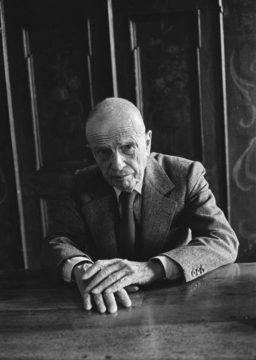Sasha Frere-Jones at The New Yorker:
 When Michel Leiris died, in 1990, at the age of eighty-nine, the anthropologist Claude Lévi-Strauss wrote, in Libération, that Leiris was “indisputably one of the great writers of the century.” That would seem to be a big claim, especially if the name Leiris meant nothing to you. What was so great about him? The anthropologist Aleksandar Bošković wrote, in 2003, that “there is perhaps no single figure that influenced so strongly French ethnology and anthropology.” This is one Leiris. But, Bošković wrote, Leiris was also an “artist, poet, writer, critic, traveller, surrealist . . . a true ‘Renaissance Man’ whose friends included Breton, Bataille, Giacometti, Picasso, Césaire, and Métraux.” This gets us closer.
When Michel Leiris died, in 1990, at the age of eighty-nine, the anthropologist Claude Lévi-Strauss wrote, in Libération, that Leiris was “indisputably one of the great writers of the century.” That would seem to be a big claim, especially if the name Leiris meant nothing to you. What was so great about him? The anthropologist Aleksandar Bošković wrote, in 2003, that “there is perhaps no single figure that influenced so strongly French ethnology and anthropology.” This is one Leiris. But, Bošković wrote, Leiris was also an “artist, poet, writer, critic, traveller, surrealist . . . a true ‘Renaissance Man’ whose friends included Breton, Bataille, Giacometti, Picasso, Césaire, and Métraux.” This gets us closer.
Leiris was, before anything, a tireless witness to lived experience. The term he preferred for most of his work was not “memoir” but “autobiographical essay,” and he applied the rigor of an objective observer to his recording of the subjective. Born in 1901, he worked steadily for seven decades, but his books have yet to secure a spot with most Anglophone readers.
more here.
